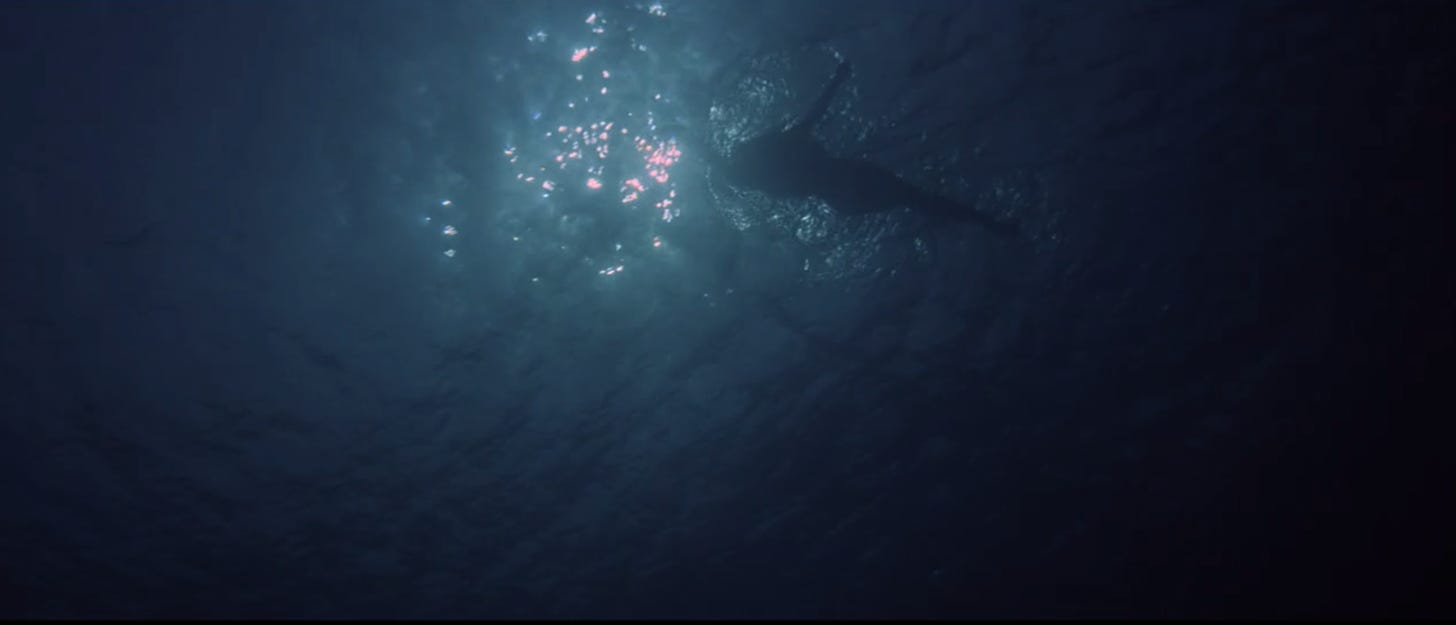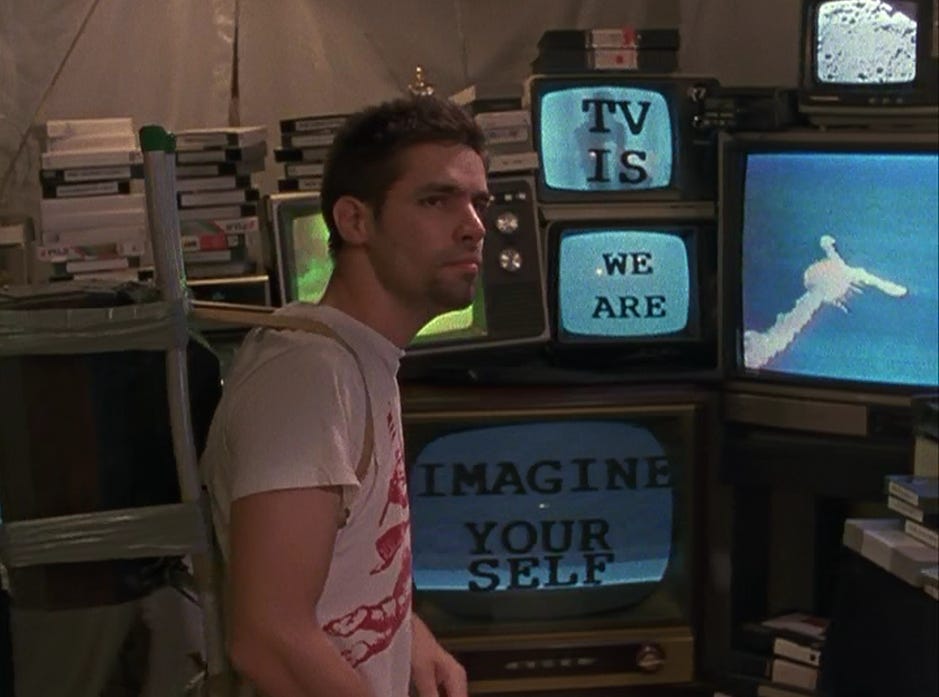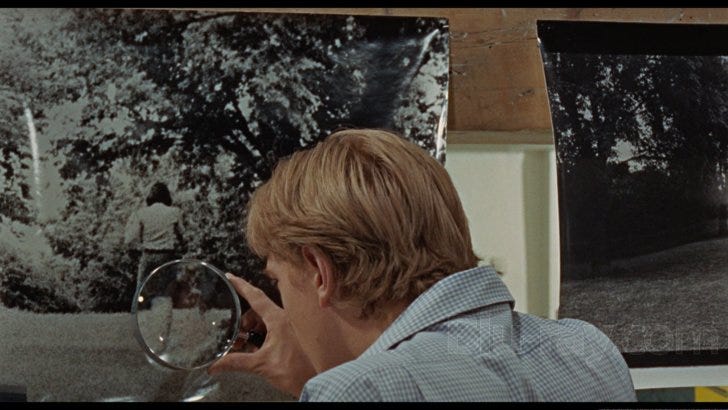... a collage quotation in search of a theme ...
“Generally speaking, art is part of an uneven global system, one that underdevelops some parts of the world, while overdeveloping others—and the boundaries between both areas interlock and overlap.” (Hito Steyerl, “Art as Occupation: Claims for an Autonomy of Life”)
“That the competition of man and the machine might have free course, the proletarians have abolished wise laws which limited the labor of the artisans of the ancient guilds; they have suppressed the holidays. Because the producers of that time worked but five days out of seven, are we to believe the stories told by lying economists that they lived on nothing but air and fresh water? Not so, they had leisure to taste the joys of earth, to make love and to frolic, to banquet joyously in honor of the jovial god of idleness. Gloomy England, immersed in protestantism, was then called “Merrie England.” Rabelais, Quevedo, Cervantes, and the unknown authors of the romances make our mouths water with their pictures of those monumental feasts with which the men of that time regaled themselves between two battles and two devastations, in which everything “went by the barrel.” Jordaens and the Flemish School have told the story of these feasts in their delightful pictures. Where, O, where, are the sublime gargantuan stomachs of those days; where are the sublime brains encircling all human thought? We have indeed grown puny and degenerate. Embalmed beef, potatoes, doctored wine and Prussian schnaps, judiciously combined with compulsory labor have weakened our bodies and narrowed our minds. And the times when man cramps his stomach and the machine enlarges its out-put are the very times when the economists preach to us the Malthusian theory, the religion of abstinence and the dogma of work. Really it would be better to pluck out such tongues and throw them to the dogs.” (Paul Lafargue, The Right to Be Lazy, trans. Charles Kerr)
“We were overscheduled and over budget, under very, very strict union laws, a lot of intensity. I received a DVD of a film called Archipelago (2010) from the BFI, who said, “You should look at this.” I had no idea who made it. I didn’t know anything about it. So I was by myself and I put it on. I was under a lot of stress and I watched the first 15 minutes, and I just couldn’t connect with it. I said, “What is going on with these people? God, they were complaining! What, they have a nice house and a nice island, what is this? I can’t watch this kind of thing.” I turned it off, but that night I thought about it. … The next day I put the film back in and watched the whole thing. I was quite stunned by it. I fell in love with it, and found myself, I must say, I just found myself living in that world. What I mean is that there was a quietness about it that had a lot of intense emotional rumbling under it, which erupts only a few times in the picture. Off-camera, usually.” (Martin Scorsese, in conversation with Joanna Hogg)
“I prefer the films that put their audience to sleep in the theater.” (Abbas Kiarostami)
“It is a common misconception that sharks as a species never sleep because they must keep moving to stay alive. Sharks do engage in periods of rest throughout the day, but it is much different from the kind of sleep that other animals engage in. … Lacking eyelids, their eyes remain perpetually open, and their pupils still monitor the motion of creatures swimming around them.” (Don Vaughan, “Do Sharks Sleep?”)
“With the exception of the shark, fish have never been given any human attributes. No fish is as contented as a cow, sly as a fox, wise as an elephant or an owl, industrious as a bee, faithful as a turtledove, self-sacrificing as a pelican, or even as lowly as a worm. Aesop, though he came from a maritime culture, has only one talking fish in his hundreds of fables: an undersized pickerel who tries to persuade the fisherman to throw him back. Without any particular personality, it merely argues for its survival.” (Eliot Weinberger, “The Laughing Fish”)
“And the fisherman was troubled, and in alarm he turned to look at the pile of little fish he had caught, all open-eyed as they were when in the water and, now afraid, he turned back to the fish in his hands, not knowing if it was looking at him or not, and he asked,
Are you alive or dead? Asleep or awake?
And the fish replied,
We do not sleep nor do we wake. We do not die nor do we live. We and the water are one.
The fisherman did not understand what it said and his unease grew when he saw that the fish’s fiery eye had turned into a golden coin, and now he saw himself reflected there with his finger stretched to pluck it out. He hesitated, then thought of all the eyes of all the other fish, and he did as he had seen. And the eye swallowed him up.” (Haytham El Wardany, The Book of Sleep, trans. Robin Moger)
“Notwithstanding, lest we should offend them, go thou to the sea, and cast an hook, and take up the fish that first cometh up; and when thou hast opened his mouth, thou shalt find a piece of money: that take, and give unto them for me and thee.” (Matthew 17:27, King James Version)
“He just turns the matter into a subject of ridicule. That is the point of the miracle. The power which imposes the levy is ridiculous, and he thus performs an absurd miracle to show how unimportant the power is. The miracle displays the complete indifference of Jesus to the king, the temple authorities, etc. Catch a fish—any fish—and you will find the coin in its mouth.” (Jacques Ellul, Anarchy and Christianity, trans. Geoffrey W. Bromiley)
“Sleep deprivation as torture can be traced back many centuries, but its systematic use coincides historically with the availability of electric lighting and the means for sustained sound amplification. First practiced routinely by Stalin's police in the 1930s, sleep deprivation was usually the initial part of what the NKVD torturers called “the conveyor belt”—the organized sequences of brutalities, of useless violence that irreparably damages human beings. It produces psychosis after a relatively short period of time, and after several weeks begins to cause neurological damage.” (Jonathan Crary, 24/7: Late Capitalism and the Ends of Sleep)
“If revolution is awakening—a long-awaited anomaly that brings a deep collective slumber to an end—then is not sleep a return to dispossession? Is it not a synonym for failure? A failure to reshape reality? An inability to alter the circumstances of life? A defeat in the struggle to redefine the self? But a closer look at what takes place in the instant that we enter sleep tells us something different: this moment does not mark the onset of failure; it simply concedes it.” (El Wardany, The Book of Sleep again)
“Yet tiredness also presents a set of exegetic problems in terms of its visibility and
invisibility, and at the level of an experienced, sensed temporality. That is, fatigue, weariness, tiredness, and exhaustion emerge from a relation to a sense of a time that passes, passes on, and passes through the actor’s laboring body, but also never ceases to pass on, to pass through.” (Elena Gorfinkel, “Weariness, Waiting: Enduration and Art Cinema’s Tired Bodies”)
“I saw a Rohmer film once … it was kind of like watching paint dry.” (Gene Hackman’s character Harry Moseby’s famous comment in Arthur Penn’s Night Moves)
“I’m trying to find a cinematic language with real literary merit. A style that doesn’t ignore what words mean, and may, in fact, end up being very wordy. The filmmaker I love the best is Eric Rohmer, especially My Night at Maud’s and The Marquise of O because it’s so literary, people talk so much, and yet it’s not uncinematic.” (Kathleen Collins, interview with Oliver Franklin)
“Rohmer’s characters can, because of their class background, afford to be idle; Linklater’s cannot. They are often young, newly independent, and thus poor. Ethan Hawke’s character, Jesse, for example, has to stay up all night because he does not have the money for a hotel room. Still, idleness is just as important to those who do not have the money to be so. In this sense, Linklater’s work is akin the work of Jacques Tati, despite his interest in the content of dialogue, which Tati cared little about. Tati’s Hulot is simply unfit for work, as in Mon Oncle (1958), when he falls asleep in the rubber hose factory, thus setting off a major malfunction in the assembly line.” (Brian Price, “Richard Linklater”)
“An idle-rich class of do-nothings are hard put to it even to amuse themselves, let alone celebrate a festival. The dolce vita is a desperately unfestive affair. There is, incidentally, considerable testimony that this sad truth applied also to the courtly festivals of the Baroque period, which many an innocent historian has described as highly festive occasions. The probably is that they sprang not from joy in living, but from fear, from horror vacui, because the true prerequisite for festivity was lacking at these courts. … Incidentally, pseudo-festivals exist, as well as pseudo-work.” (Josef Pieper, In Tune with the World: A Theory of Festivity)
“If we think of work as labor, it implies a beginning, a producer, and, eventually, a result. Work is primarily seen as a means to an end: a product, a reward, or a wage. It is an instrumental relation. It also produces a subject by means of alienation. An occupation is the opposite. An occupation keeps people busy instead of giving them paid labor. An occupation is not hinged on any result; it has no necessary conclusion. As such, it knows no traditional alienation, nor any corresponding idea of subjectivity. An occupation doesn’t necessarily assume remuneration either, since the process is
thought to contain its own gratification. It has no temporal framework except the passing of time itself. It is not centered on a producer/worker, but includes consumers, reproducers, even destroyers, time-wasters, and bystanders—in essence, anybody seeking distraction or engagement.” (Steyerl, “Art as Occupation” again)
“24/7 is a time of indifference, against which the fragility of human life is increasingly inadequate and within which sleep has no necessity or inevitability. In relation to labor, it renders plausible, even normal, the idea of working without pause, without limits.” (Crary, 24/7 again)
“Or come from out of the tunnels we dig in
To see that tunneling's not living
And working doesn't work
Or come to find that loving is labor
Labor's life and life's forever”
(Ted Leo, “Biomusicology”)
“First of all, I would say that cinema has been the victim of its own prestige, and (auteur) theory of its international success, which has opened wide the doors of the academy. As soon as film thought became an academic discipline, it became fixed; it ceased to be the continuation of filmmakers’ material and practical concerns. Who, today, is seriously interested in how lenses transform space, particularly by the long focal lengths specific to modern cinema? Who wonders about the monocular perspective as a limit to cinema’s reproduction of the real? Or, again, who explores the disparity between the open, free field of novel or modern-theatre writing and the narrow limits of the conventions governing the work of committees and commissions holding the power of life and death over cinematographic works? Not to mention series, whose standard-bearers seem all too happy to have a go at applying the tissue of conventions and platitudes from American screenwriting textbooks. What I am getting at is the point when living theory becomes dead ideology. In the hands of university professors, who see it as a chance to add a touch of modernity to their teaching, thought in motion becomes a doxa, an assemblage of rules, of automatisms, no longer based on anything since we have forgotten their very source, the source of youth, of the most spontaneous poetry.” (Olivier Assayas, “State of Cinema 2020”)
“Just as in literature one differentiates “styles” or ways of writing, one can distinguish “ways of operating”—ways of walking, reading, producing, speaking, etc. These styles of action intervene in a field which regulates them as first level (for example, at the level of the factory system), but they introduce into it a way of turning it to their advantage that obeys other rules and constitutes something like a second level interwoven into the first (for instance, la perruque). These “ways of operating” are similar to “instructions for use,” and they create a certain play in the machine through stratification of different and interfering kinds of functioning.” (Michel de Certeau, The Practice of Everyday Life)
“Mētis is typically translated into English as “cunning,” or “cunning intelligence.” While not wrong, this translation fails to do justice to the range of knowledge and skills represented by mētis. Broadly understood, mētis represents a wide array of practical skills and acquired intelligence in responding to a constantly changing natural and human environment.” (James C. Scott, Seeing Like a State: How Certain Schemes to Improve the Human Condition Have Failed)
“We live in a world where it seems you have to choose between brutal materialism and blind faith. It’s very hard to be idealistic about the world we live in, and a lot of people have resigned somehow. But some haven’t.” (Mia Hansen-Løve, interview with Tina Poglajen)
“The oft-noted turn in recent international art cinemas toward a realist, contemplative, “slow” aesthetic, as well as toward a “cinema of sensation,” returns to some of the hallmarks of the postwar modernism that Deleuze so creatively contoured. This slow, materialist cinema prizes the everyday rhythms of the phenomenal world and an immersion in dilated duration—through the use of long takes, camera movements, and static framings—over and above exposition, fast-paced editing, or narrative hydraulics. In these materialist traits, we appraise a key site of the political and aesthetic potential of tiredness: its very location and emplacement within the acting, performing, laboring bodies that produce a crucial factor of this cinema’s aesthetic cohesiveness. Weariness implies or forces a slowed pace, a distended, delayed, or arrested productivity, and the temporal processes of recent contemplative cinema ask us to observe a waning and fluctuating corporeal, material energy—bodies wander, take their time, lose, or rather never gain their course, but nevertheless they act and are acted upon by the weight, gravity, and force of their own motion or immobility.” (Gorfinkel, “Weariness, Waiting” again)
“Speed was the century’s novelty and its glamour: cars, planes, rockets, computer calculations, and instantaneous communication. Filmed and written narratives leapt from point to point without transitions, running as memory runs, and in the end forgot there was a story to tell. Past the gate of Apollinaire’s “Zone” every poem written was an exercise in (or deliberate rejection of) simultaneity. Long poems—Eliot’s The Waste Land or Huidobro’s Altazor—kept reminding the reader to hurry up. Every Western language cut back the vines of its rhetorical flourishes. Who had the time? Attention shortened; you were too busy; everything took too long, and was hard to remember later.” (Eliot Weinberger, “Karmic Traces”)
“The mimetic pull of desire is particularly powerful in the world of the Matrix, because it is a simulated world lacking in material substance. At one point, Mouse asks how the AI which designed the Matrix could have known what chicken tastes like in order for them to simulate it for humans. The question goes unanswered; but perhaps the point is that its desirability as a dish stems less from its taste than the fact that others desire it too.” (Andrew Montin, “Mimetic Desire and Sacrifice in The Matrix”)
“Indeed, it may be said that it is this category of the jobless young Black males who have been made to pay the “sacrificial costs” (in the terms of René Girard's The Scapegoat, 1986) for the relatively improved conditions since the 1960's that have impelled many Black Americans out of the ghettoes and into the suburbs; that made possible therefore the universal acclamation for the Cosby-Huxtable TV family who proved that some Black Americans could aspire to, and even be, drawn inside, the “sanctified category” of Americans just like us—if still secondarily so, behind “women” and the other “minorities.”” (Sylvia Wynter, “No Humans Involved”)
“Even protests against the vulgarization/vulgarity of the media often depend on an analogous pedagogical claim; inclined to believe that its own cultural models are necessary for the people in order to educate their minds and elevate their hearts, the elite upset about the “low level” of journalism or television always assumes that the public is molded by the products imposed on it.” (de Certeau, The Practice of Everyday Life)
“In viscerally violent dramas, cringeworthy ironic comedies, and trashy reality programs alike, televisual unease trains audiences to survive under late capitalism, which demands that individuals accept a certain amount of discomfort, dread, and irritation into their everyday lives.” (from a summary for a new book by Hunter Hargraves, Uncomfortable Television)
“If I ventured in the slipstream
Between the viaducts of your dream
Where immobile steel rims crack
And the ditch in the back roads stop
Could you find me?
Would you kiss-a my eyes?
To lay me down
In silence easy
To be born again
To be born again”
(Van Morrison, “Astral Weeks”)




No comments:
Post a Comment